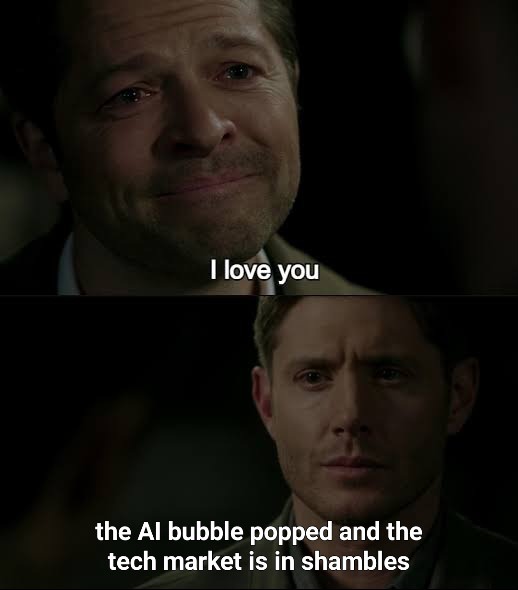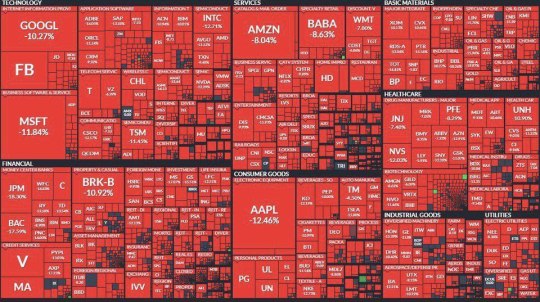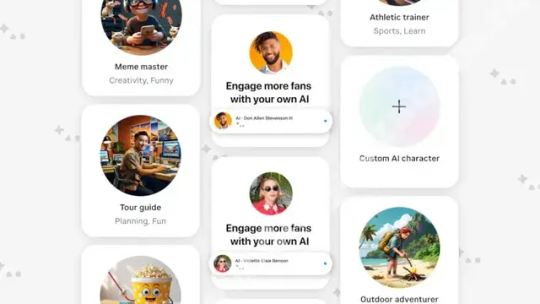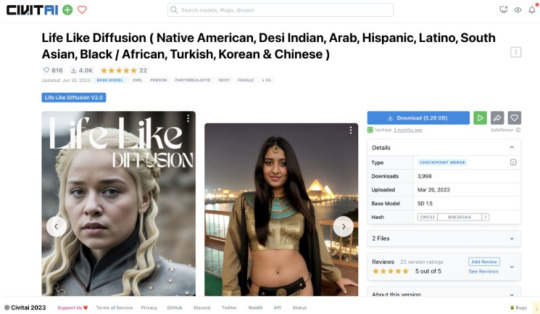#marketing AI
Explore tagged Tumblr posts
Text
Google AI summary is also useless business-wise. If SERP goal is to be noticeable then, naturally, adapting content for Google's AI summary over traditional featured snippets seems like a logical choice.
But there's one BUT...
There's no way to measure engagement through AI. So, sure, chatGPT or Google AI summary might recommend you to someone, but you wouldn't know that people came to your page because of it. There's no way to measure it.
So you can either do what you used to do because it worked, or try to appease something that does not bring noticeable success.
I feel like the big push for AI is starting to flag. Even my relatively tech obsessed dad is kinda over it. What do you even use it for? Because you sure as hell dont want to use it for fact checking.
There's an advertisement featuring a woman surreptitiously asking her phone to provide her with discussion topics for her book club. And like... what. Is this the use case for commercial AI? This the best you could come up with? Lying to your friends about Moby Dick?
26K notes
·
View notes
Text


So on the 27th DeepSeek R1 dropped (a chinese version of ChatGPT that is open source, free and beats GPT's 200 dollar subscription, using less resources and less money) and the tech market just had a loss of $1,2 Trillion.
Source

#market crash#deepseek#deepseek AI#chatgpt#OpenAI#world news#destiel news#im quite late for the news but I havent seen it anywhere on tumblr so#here it is#fuck ai#meh
87K notes
·
View notes
Text
Transform your marketing outcomes with Conversion AI. Boost your campaigns, attract prospects, and enhance conversions beyond compare. Discover the power of AI-driven marketing today!
0 notes
Text
#writesonic#marketing#marketing agent#marketing ai#business#marketing tools#advertising#content creation#ai chatbots#generative ai platform
0 notes
Text
Meta plănuiește introducerea profilurilor AI pe Facebook: oportunitate sau distopie?
Conform dezvăluirilor recente publicate de Financial Times, Meta explorează posibilitatea de a introduce profiluri controlate de inteligență artificială (AI) pe platforma Facebook. Aceste conturi ar putea interacționa cu utilizatorii, iniția cereri de prietenie și posta conținut, oferind impresia unor persoane reale. Oficial, pentru îmbunătățirea experienței utilizatorilor Meta susține că această…

View On WordPress
#AI bots#AI marketing#AI profiles#artificial intelligence#bam#boți AI#Connor Hayes#diagnosis#diagnoza#digital transparency#etică tehnologică#facebook#fake news#german#inteligenta artificiala#marketing AI#meta#neamt#profiluri AI#roman#social media#social media future#știri false#tech ethics#transparență digitală#viitor social media
0 notes
Text
Power your Personal Productivity
This is how civilization ends. Not with a bang, but with a seven fingered hand holding a bacon ice-cream cone.
Hmmm… could make a good icon image for these "multiply your creativity" stickers, an angelic tarot Ace of Cups hand triumphantly holding aloft the radiant confection? 🤔
disclosure: I have only ever been asked once, and only that once, to attend a marketing meeting. They wanted gate receipts but feared putting 'science' in a science museum would scare people away. I suggested adding free beer and naked dancers.
0 notes
Text
Agencia de Marketing Tijuana
En la era digital actual, el marketing ha evolucionado de manera significativa. Con la proliferación de datos, la automatización y la inteligencia artificial (IA), las empresas están adoptando nuevas estrategias para alcanzar a su audiencia de manera más efectiva y eficiente que nunca. En este contexto, el papel de la IA en el marketing es cada vez más relevante, ofreciendo oportunidades sin precedentes para las marcas que desean destacarse en un mercado competitivo.
Una de las formas en que la IA está revolucionando el marketing es a través de la personalización. Gracias a algoritmos avanzados, las empresas pueden analizar grandes cantidades de datos sobre sus clientes y prospects para entender mejor sus preferencias, comportamientos y necesidades individuales. Esto permite a las marcas crear mensajes y ofertas altamente personalizados que resuenen con su audiencia de una manera más profunda, aumentando así la probabilidad de conversión y fidelización.
Pero la IA no se detiene en la personalización. También está impulsando la automatización de tareas repetitivas y de baja complejidad, liberando el tiempo y los recursos de los profesionales del marketing para enfocarse en actividades más estratégicas y creativas. Desde la programación de publicaciones en redes sociales hasta la optimización de campañas de anuncios en línea, la IA está simplificando los procesos y mejorando la eficiencia en todas las etapas del embudo de ventas.
Un ejemplo destacado de cómo la IA está transformando el marketing es a través de la optimización de motores de búsqueda (SEO). Con algoritmos de aprendizaje automático, los motores de búsqueda pueden comprender mejor el contenido y las intenciones de búsqueda de los usuarios, lo que permite a las marcas mejorar su visibilidad en línea y atraer tráfico orgánico de alta calidad a sus sitios web. Además, la IA también puede ayudar en la identificación de palabras clave relevantes y en la creación de contenido optimizado para SEO, lo que contribuye a un mejor posicionamiento en los resultados de búsqueda.
En el contexto de Tijuana, una ciudad en constante crecimiento y desarrollo empresarial, la importancia del marketing digital y la publicidad no puede subestimarse. Con una población diversa y un mercado competitivo, las empresas locales necesitan estrategias de marketing sólidas para destacarse entre la multitud y alcanzar a su audiencia objetivo de manera efectiva. Es aquí donde entra en juego una agencia de marketing con visión hacia el futuro, como NoSomosAgencia.mx.
NoSomosAgencia.mx no es solo una agencia de marketing tradicional. Con un enfoque en la innovación y la adopción de tecnologías avanzadas como la IA, están liderando el camino hacia el futuro del marketing en Tijuana. Desde la creación de campañas publicitarias altamente segmentadas hasta la implementación de estrategias de contenido personalizado, esta agencia está ayudando a las empresas locales a maximizar su presencia en línea y a alcanzar sus objetivos de marketing de manera más eficiente que nunca.
Al colaborar con NoSomosAgencia.mx, las empresas en Tijuana pueden aprovechar todo el potencial de la IA para mejorar su estrategia de marketing y alcanzar resultados sobresalientes. Ya sea a través de la optimización de motores de búsqueda, la automatización de procesos de marketing o la personalización de contenido, esta agencia tiene las herramientas y la experiencia necesarias para impulsar el éxito de cualquier negocio en el mercado digital actual.
En conclusión, la inteligencia artificial está cambiando la forma en que las empresas abordan el marketing. Desde la personalización hasta la automatización, la IA ofrece oportunidades sin precedentes para mejorar la eficiencia y la efectividad de las estrategias de marketing en Tijuana, una agencia líder como NoSomosAgencia.mx está llevando esta transformación al siguiente nivel, ayudando a las empresas locales a destacarse en un mercado competitivo y en constante evolución. Con su enfoque innovador y su compromiso con la excelencia, están allanando el camino hacia el futuro del marketing en la región.
#marketing en tijuana#agencia de marketing en tijuana#marketing AI#AI Marketing#nosomosagencia.mx#nosomosagencia tijuana
1 note
·
View note
Text
Tips for Digital Marketing Success in 2024
#digitalmarketingexpert #aimarketing #digitalmarketingsucess #digitalprofits #digitalmarketingaudit #seo #sem #internetmarketing
0 notes
Text
According to a study by BusinessDIT, 90% of the brands worldwide are investing in AI, and 83% strongly believe that AI will help them maintain or gain competitive edge.
From enabling personalized financial services to optimized store layouts in retail industry, AI is revolutionizing various sectors across industries.
Our recent blog unveils how AI is transforming industries like finance, retail, healthcare, manufacturing, and retail.
#ai#finance revolution#retail tech#healthcare ai#manufacturing automation#marketing ai#ai innovation
0 notes
Text
Guida Pratica all'Utilizzo dell'IA nel Content Marketing
L’intelligenza artificiale (IA) è una tecnologia che sta rivoluzionando il mondo del marketing digitale, in particolare il content marketing. L’IA è in grado di analizzare grandi quantità di dati, generare contenuti originali e personalizzati, ottimizzare le strategie di distribuzione e misurare i risultati. In questa guida pratica, vedremo come utilizzare l’IA nel content marketing per…

View On WordPress
#chatbot#Content Marketing#generazione di contenuti#IA#Intelligenza Artificiale#marketing ai#marketing digitale#ottimizzazione pubblicitaria#PMI#SEO#strategie digitali#successo online
1 note
·
View note
Text
Top 5 Newest Stable Diffusion Models
These days Stable Diffusion is the most advanced AI art generator tool. to improve image quality and create different types of images we can use different types of models. that enables the generation of stunning and realistic images. In this article, I will explore the top 5 newest models of Stable Diffusion that are making unbillable images. These models can give a more quality result for our…

View On WordPress
0 notes
Text





Imaginary pictures from an occult flea market.
9K notes
·
View notes
Text
https://teaminnovatics.com/coversational-ai/marketing/
Maximize your marketing success with AI for Marketing. Implement AI-driven insights to improve campaign performance and customer experience. Explore our services now!
#Marketing AI#ai for marketing#ai marketing automation#ai and marketing#ai for business#generative ai for marketing#ai marketing strategy#ai driven marketing#marketing automation company#marketing automation solutions#ai driven marketing automation#artificial intelligence in sales and marketing#ai marketing company#generative ai marketing#ai for customer engagement
0 notes
Text
0 notes
